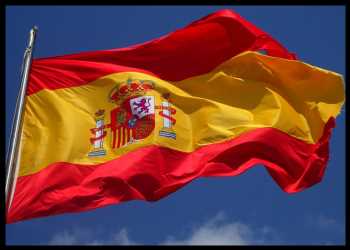Spain consumer price inflation eased in March to the weakest since August 2021 due to falling electricity and fuel prices but core inflation remained sticky, flash estimates from the statistical office INE showed Thursday.
Consumer prices climbed at a much slower pace of 3.3 percent from the last year, following the 6.0 percent increase in February.
The latest rate was the lowest since August 2021 when it was at the same level. Prices were expected to advance 3.8 percent.
This development was mainly due to the fact that electricity and fuel prices increased in March 2022 but decreased in the current period.
Excluding non-processed food and energy prices, core inflation eased only slightly to 7.5 percent from 7.6 percent in February.
On a monthly basis, overall consumer prices rose 0.4 percent, weaker than February’s 0.9 percent increase. Economists had forecast a 0.6 percent climb.
The harmonized index of consumer prices, or HICP, grew 3.1 percent after rising 6.0 percent in February. The rate was also weaker than the expected 4.0 percent.
EU harmonized inflation weakened to the slowest since July 2021, when prices advanced 2.9 percent.
Month-on-month, the HICP gained 1.1 percent, which was faster than the 0.9 percent rise a month ago. Economists had forecast a monthly growth of 1.6 percent.
Bank of Spain has forecast Spain’s EU harmonized inflation to slow to 3.7 percent this year, 3.6 percent in 2024 and 1.8 percent in 2025.
ING economist Wouter Thierie said core inflation will also gradually lose momentum but it would remain much stickier.
The economist forecast inflation to reach 3.8 percent in 2023 and 3.1 percent in 2024. However, Thierie noted that in early next year, inflation could go higher again because many government measures to offset inflation and high energy prices will expire.
In February, Eurozone inflation slowed to 8.5 percent from 8.6 percent in January. However, core inflation in the currency bloc accelerated to a record 5.6 percent in February. Flash inflation data for the current month is due on March 31.
Early this month, the European Central Bank had hiked its interest rates by 50 basis as inflation is expected to remain “too high for too long”.
Another report from INE showed that retail sales posted its first monthly fall in seven months in February. Retail sales slid 0.3 percent month-on-month, in contrast to the 0.4 percent rise in January.
Year-on-year, retail sales growth slowed to 4.0 percent from 5.5 percent in the previous month. On an unadjusted basis, retail sales gained 3.5 percent in February.
Source: Read Full Article
-
The two wildcards that could decide what happens next to interest rates
-
European Economics Preview: UK Unemployment Data Due
-
Morgan Stanley Q1 Results Down, Yet Beats View
-
Tax Credit for Honolulu Homeowners: Who Will Get It and How Much
-
Eurozone Record High Core Inflation Confirmed; Labor Costs Rise Faster

